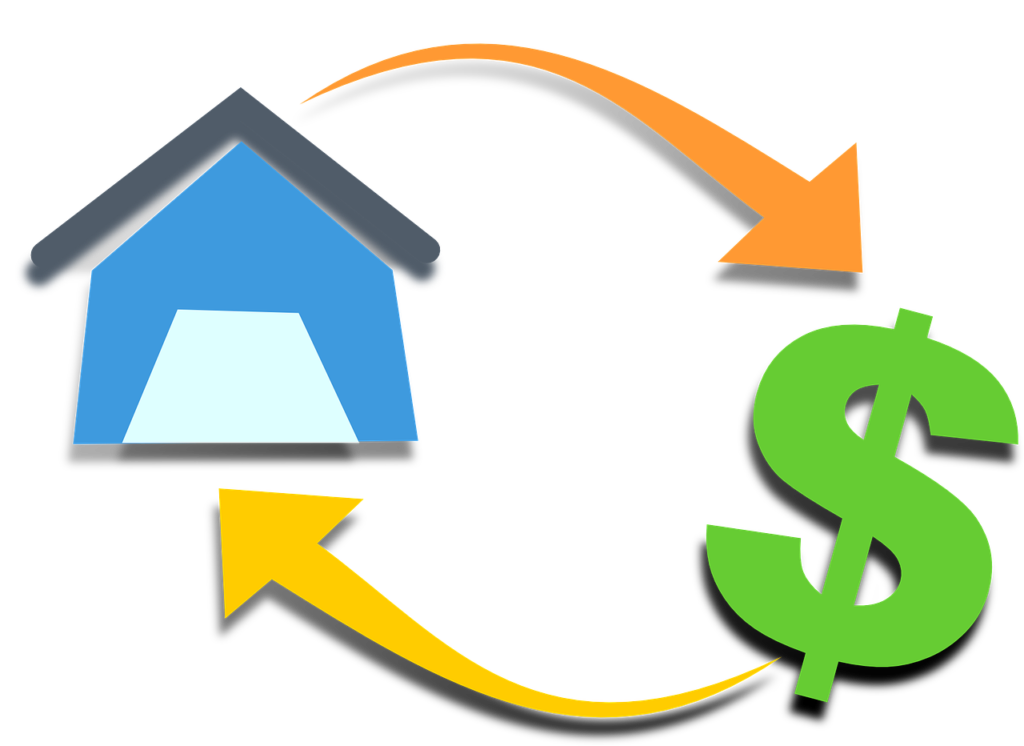Interest Rate Trends: Impact on Mortgage Options
Interest rates have a significant impact on mortgage options. Fluctuations in interest rates can greatly affect the affordability of mortgage payments for borrowers. Whether you are a first-time homebuyer or an experienced homeowner looking to refinance, it is important to understand how interest rate trends can impact your mortgage options.
One of the primary factors that potential homebuyers consider when choosing a mortgage is the interest rate. A lower interest rate typically means lower monthly mortgage payments, making homeownership more affordable. On the other hand, higher interest rates can result in higher monthly payments, potentially making it more challenging for borrowers to qualify for a loan or afford their desired home.
Variable rate mortgages, also known as adjustable rate mortgages (ARMs), offer flexibility in terms of interest rates. Unlike fixed-rate mortgages, which have a set interest rate for the entire term of the loan, variable rate mortgages have interest rates that can fluctuate over time. These mortgages typically have an initial fixed rate period, after which the rate adjusts periodically based on changes in market conditions.
The flexibility of variable rate mortgages can be appealing for borrowers who anticipate a decrease in interest rates in the future or plan to sell their property before the rate adjusts. During the initial fixed rate period, borrowers can take advantage of lower interest rates, resulting in lower monthly mortgage payments. However, it is important to consider the potential risks associated with variable rate mortgages.
If interest rates increase, borrowers with variable rate mortgages may experience higher monthly payments, potentially straining their budget. This can be particularly challenging for borrowers who have taken on a larger loan amount or those who have already stretched their budget to afford the initial lower monthly payments. It is crucial for borrowers to carefully assess their financial situation and evaluate their ability to afford potential future increases in mortgage payments.
It is also important to note that the frequency of rate adjustments can vary depending on the specific terms of the mortgage. Some variable rate mortgages may adjust annually, while others may adjust more frequently. Borrowers should carefully review the terms of the mortgage and consider their long-term financial goals before choosing a variable rate mortgage.
In conclusion, interest rate trends play a significant role in mortgage options. The affordability of mortgage payments can be greatly impacted by fluctuations in interest rates. Variable rate mortgages offer flexibility, but borrowers should carefully evaluate the potential risks associated with these types of mortgages, especially if interest rates are expected to increase in the future. It is essential for borrowers to thoroughly research and consider their financial situation before making a decision on a mortgage option.

Variable Rate Mortgages vs. Fixed Rate Mortgages: Pros and Cons
When it comes to obtaining a mortgage, one of the important decisions borrowers have to make is whether to opt for a variable rate mortgage or a fixed rate mortgage. Both options have their own advantages and disadvantages, so it’s essential to understand the pros and cons before making a decision that will impact your financial stability in the long run.
Variable Rate Mortgages
Variable rate mortgages, also known as adjustable-rate mortgages (ARMs), offer lower initial interest rates compared to fixed rate mortgages. This can be particularly attractive for borrowers who are looking to lower their monthly mortgage payments or who want to take advantage of a low-interest rate environment.
However, it’s important to keep in mind that the interest rate on a variable rate mortgage can fluctuate over time. These fluctuations are typically tied to an index, such as the prime interest rate, and can result in changes to the monthly mortgage payment amount. If the interest rates increase, borrowers may experience a significant rise in their monthly payments, potentially putting a strain on their budget.
- Pros of Variable Rate Mortgages:
- Lower initial interest rates
- Potential for lower monthly payments during periods of low interest rates
- Opportunity to take advantage of falling interest rates
- Cons of Variable Rate Mortgages:
- Uncertainty due to fluctuating interest rates
- Potential for higher monthly payments as interest rates rise
- Financial strain if interest rates increase significantly
Fixed Rate Mortgages
Fixed rate mortgages, on the other hand, offer stability and predictability. The interest rate remains constant throughout the term of the mortgage, which means borrowers don’t have to worry about fluctuations in their monthly payments due to changes in interest rates.
While fixed rate mortgages may have higher initial interest rates compared to variable rate mortgages, they provide borrowers with peace of mind, as they know exactly how much their monthly mortgage payment will be for the entire duration of the loan. This can make budgeting and financial planning easier for homeowners.
- Pros of Fixed Rate Mortgages:
- Stable and predictable monthly payments
- Easier budgeting and financial planning
- No worry about interest rate fluctuations
- Cons of Fixed Rate Mortgages:
- Higher initial interest rates compared to variable rate mortgages
- No benefit from falling interest rates
- Penalties for early mortgage repayment
Ultimately, the decision between a variable rate mortgage and a fixed rate mortgage depends on your financial goals, risk tolerance, and market conditions. It’s crucial to carefully evaluate the pros and cons of each option and consider your long-term financial plans before making a choice that aligns with your needs and preferences.

Real Estate Market Dynamics: Influence on Mortgage Decision-Making
When it comes to purchasing a home, one of the most important factors to consider is the state of the real estate market. Market conditions can have a significant impact on housing prices as well as mortgage interest rates. As a potential homebuyer, it is crucial to understand these market dynamics to make informed decisions about your mortgage options.
Impact on Housing Prices
The real estate market is known for its fluctuations, and these fluctuations can directly affect housing prices. In a seller’s market, where demand exceeds supply, housing prices tend to rise. This means that you may need to adjust your budget or consider financing options that accommodate higher prices. On the other hand, in a buyer’s market, there is typically more inventory than demand, leading to lower housing prices. This could be an opportunity to secure a more affordable home or negotiate a better deal.
Impact on Mortgage Interest Rates
The state of the real estate market also influences mortgage interest rates. When the market is thriving, lenders may feel confident and offer lower interest rates to attract potential homebuyers. Conversely, during economic downturns or when the market is experiencing volatility, lenders may raise interest rates to mitigate risk. This can significantly impact the overall cost of your mortgage and influence your monthly payments. Therefore, staying informed about the market trends can help you strategize and take advantage of favorable interest rates.
Choosing the Right Mortgage Option
Understanding market dynamics is essential when selecting the right mortgage option. By keeping track of market trends and anticipating potential changes, you can make better decisions regarding the type of mortgage that suits your needs. For example, if housing prices are expected to rise in the future, you may want to consider a fixed-rate mortgage to lock in a low interest rate for a more extended period. Alternatively, if prices are expected to decline, an adjustable-rate mortgage could provide flexibility and potentially lower monthly payments.
Additionally, being knowledgeable about the real estate market can help you assess the risk associated with certain mortgage options. For instance, if the market is unstable, it might be wise to avoid riskier loan programs, such as interest-only mortgages or balloon mortgages, which could become problematic if housing prices drop. By understanding market conditions, you can choose a mortgage that not only aligns with your financial goals but also minimizes potential risks.
In conclusion, the real estate market has a significant influence on mortgage decision-making. Market conditions directly impact housing prices and mortgage interest rates, and understanding these dynamics is crucial for making informed choices. By staying informed about market trends, you can determine the right time to enter the market, choose the most suitable mortgage option, and ultimately achieve your homeownership goals.
Navigating Mortgage Choices in the Current Canadian Market
When looking to secure a mortgage in the Canadian market, it is important to consider your personal financial goals and risk tolerance. As mortgage options vary, understanding your own financial situation and objectives will help guide you towards making the most appropriate choice.

Consider personal financial goals:
Before selecting a mortgage, take the time to clearly define your financial goals. Are you looking to buy your first home, upgrade to a larger property, or invest in real estate? Understanding your goals will help you determine the type of mortgage that aligns with your long-term financial plans.
Take into account factors such as the loan term, interest rate, and monthly payments. If you plan to stay in your property for a longer period, a fixed-rate mortgage may provide stability. If you expect to move within a few years, an adjustable-rate mortgage might offer lower initial payments. Consider how your mortgage choice fits within your overall financial strategy.
Assess your risk tolerance:
Mortgages come with different levels of risk. Analyzing your financial risk tolerance can help you choose a mortgage that makes you feel comfortable and secure. Take into consideration factors such as potential interest rate fluctuations and the impact they may have on your payments.
For example, if you prefer stability and want to avoid the uncertainty of changing interest rates, a fixed-rate mortgage might be more suitable. On the other hand, if you are willing to take on some risk in exchange for potentially lower initial payments, an adjustable-rate mortgage may be a viable option.
Seek advice from mortgage professionals:
While it is important to research and understand mortgage options on your own, seeking advice from mortgage professionals can provide valuable insights. Mortgage brokers and lenders can help you navigate the complexities of the Canadian mortgage market and provide personalized guidance based on your specific situation.
These professionals can assist in reviewing your financial goals, risk tolerance, and current financial standing to recommend the most suitable mortgage options. They have access to a variety of lenders and mortgage products, ensuring you receive comprehensive information to make an informed decision.





